In the world of firefighting, success is often measured in seconds, and the right equipment can be the difference between life and tragedy. When a fire blazes, firefighters rely on an extensive arsenal crafted to combat flames, ensure safety, and protect property. From the trusty fire extinguisher to sophisticated thermal imaging cameras, the diversity of firefighting equipment mirrors the complex challenges posed by fire emergencies.
Join us as we explore the crucial tools that empower firefighters to brave the flames.
What is Firefighting Equipment?
Firefighting equipment encompasses a variety of specialized tools and protective gear designed to effectively manage and extinguish fires. These essential elements serve multiple purposes: they not only equip firefighters to douse flames but also safeguard their well-being as they navigate hazardous environments. The ongoing evolution of firefighting gear underscores a commitment to enhancing safety, efficiency, and effectiveness, affirming the role of these tools in protecting both communities and the brave individuals at the forefront of firefighting efforts.
The Essential List of Firefighting Equipment
- Fire Extinguishers
Portable, versatile, and a first line of defense, fire extinguishers are designed to tackle small fires with precision. Using different agents—water, foam, dry powder, or CO2—fire extinguishers handle a range of fire types effectively, ensuring adaptability in various scenarios.
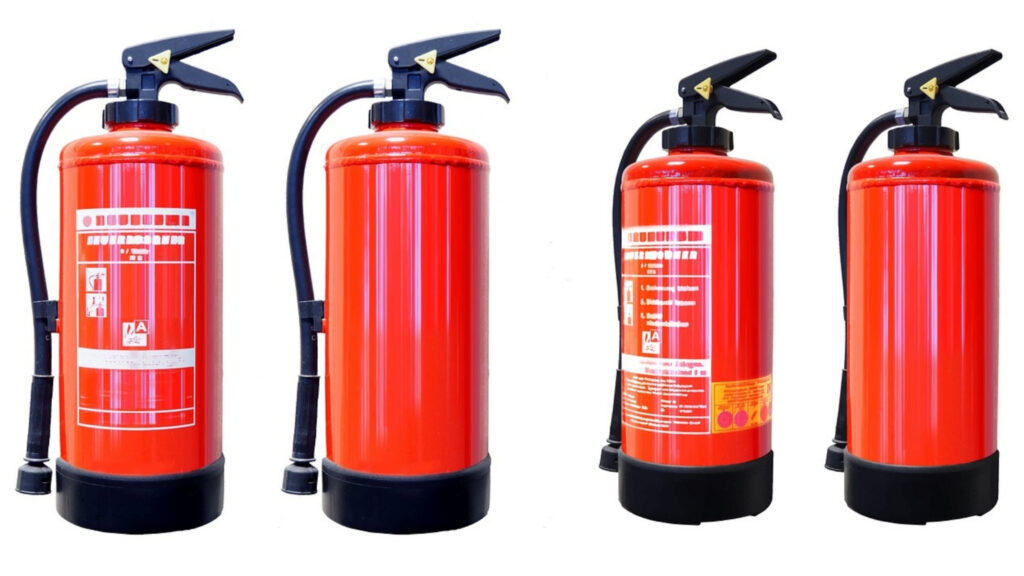
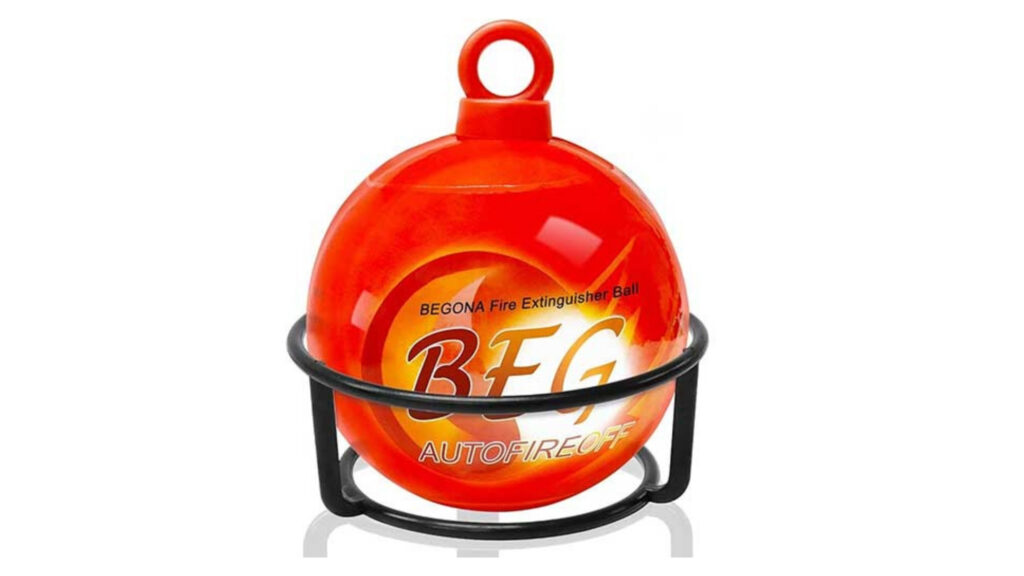
- Fire Extinguisher Ball
This innovative device shatters when it encounters flames, releasing a fine powder to extinguish fires autonomously. Particularly useful in confined spaces, extinguisher balls ensure rapid action even when immediate human intervention is challenging. - Fire Hoses
A staple in firefighting, hoses allow firefighters to channel water directly onto significant flames. Their flexibility and length make them indispensable in reaching challenging locations to effectively suppress fires. - Hose Jets
Requiring teamwork, hose jets offer heightened force and control during firefighting. Firefighters can adjust the jet stream for increased precision against flames, making collaborative use essential in larger firefighting tasks.
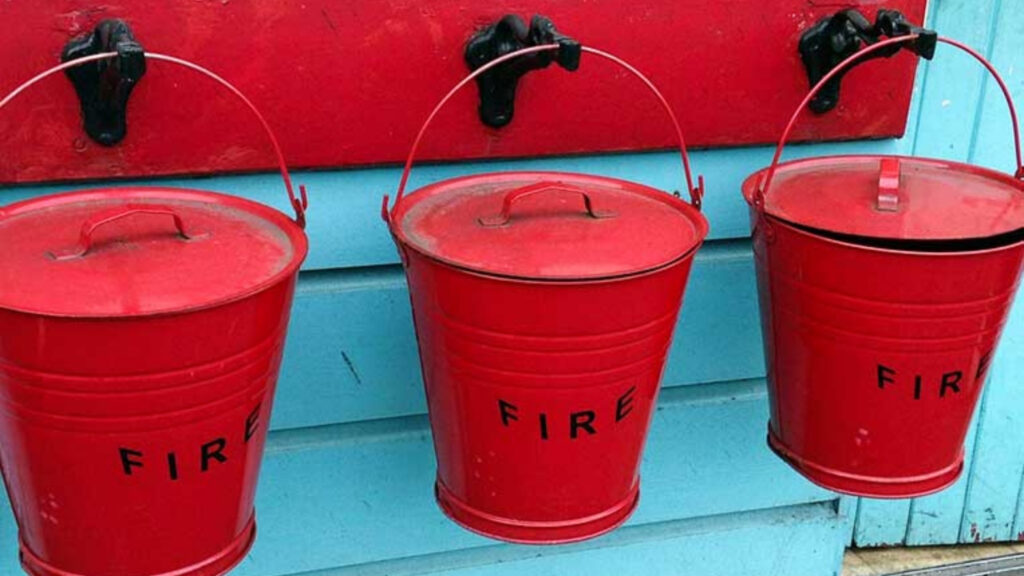

- Fire Buckets
Surprisingly simple yet effective, fire buckets filled with water or sand serve as an immediate response tool for small fires. Strategically positioned, they empower individuals to take swift action during initial fire scenarios. - Flamezorb
This granular substance absorbs flammable liquids, preventing fire spread in hazardous material situations. Flamezorb’s rapid absorption capabilities make it an invaluable resource for controlling potential fire escalations. - Fire Blankets
Versatile and made from fire-resistant materials, fire blankets can smother small fires or wrap around individuals in emergencies. Their adaptability makes them useful in various scenarios where immediate protection is required. - Fire Suit
These suits are not just uniforms; they’re vital barriers against extreme heat. Constructed from specialized materials, fire suits protect firefighters in the line of duty, allowing them to face the heat with confidence.
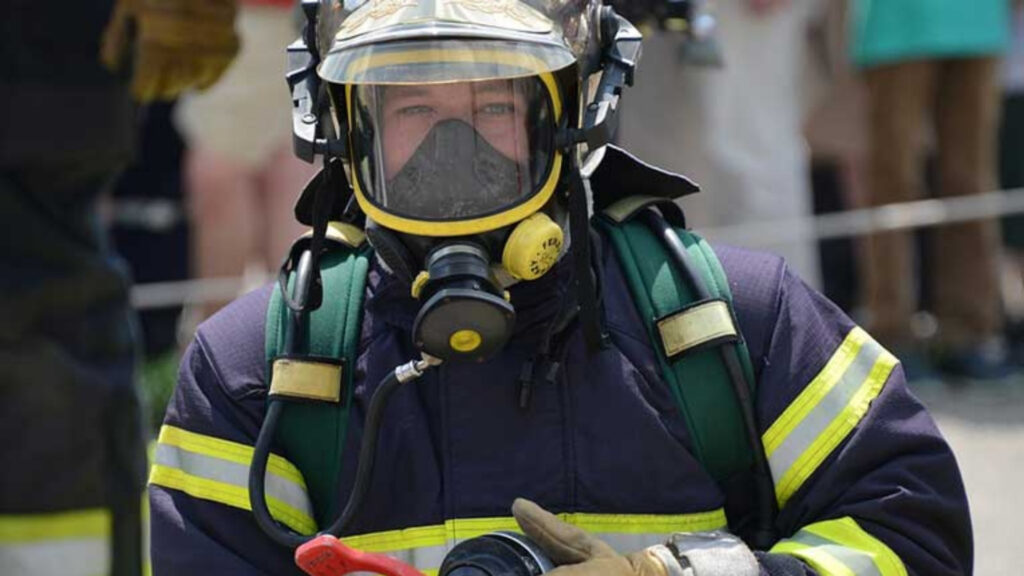
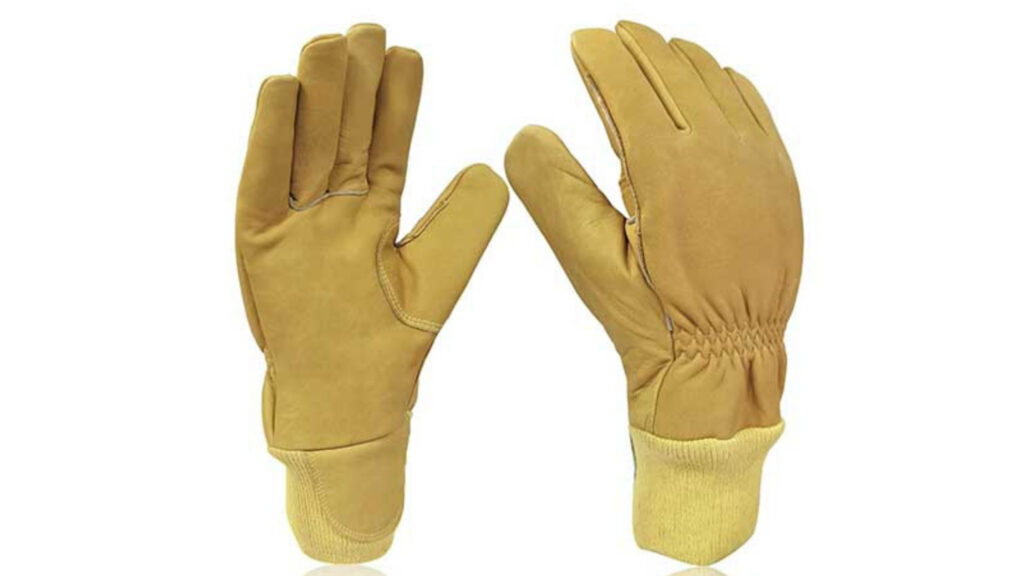
- Firefighter Gloves
Engineered for protection and dexterity, firefighter gloves enable safe handling of hot surfaces while ensuring optimal grip. They enhance the firefighters’ ability to maneuver effectively in dynamic and dangerous environments. - Gas Tight Suit
Comprising multi-layered materials, gas-tight suits serve as protective barriers against chemical hazards. Essential in chemical fire situations, they ensure firefighters can respond effectively to complex challenges without jeopardizing their safety. - Drones
Equipped with advanced cameras, drones provide aerial views that enhance situational awareness during firefighting operations. Their real-time data collection aids in planning effective responses, making them a technological asset on the front lines.
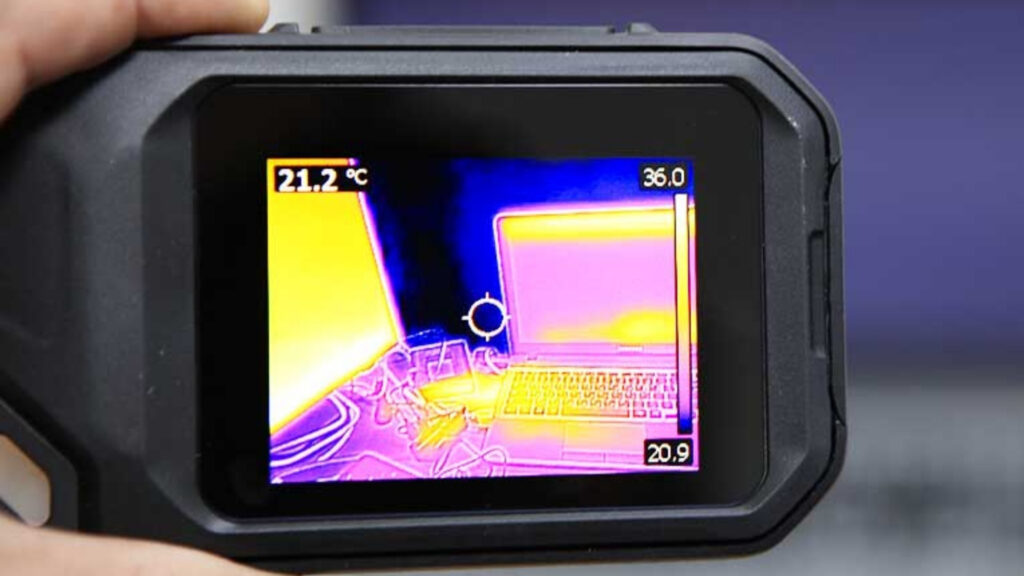
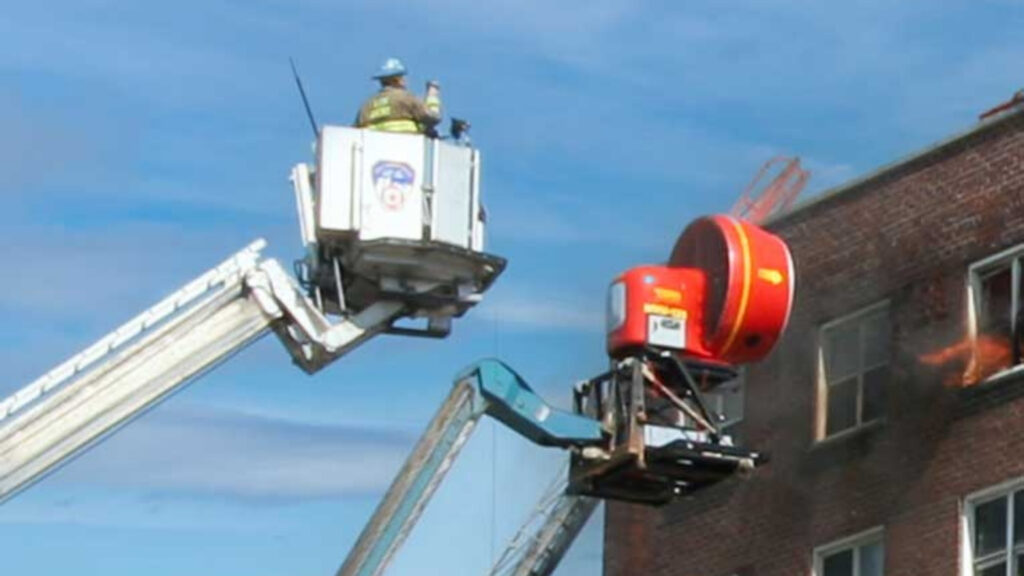
- Thermal Imaging Camera
These devices are invaluable for locating trapped individuals and identifying hidden hotspots in smoke-filled environments. Thermal imaging enhances decision-making, optimizing resource allocation during firefighting efforts. - Breathing Apparatus
Critical in smoke-laden situations, breathing apparatus provide firefighters with clean air, ensuring their safety while they work. Their reliability underscores the importance of maintaining air quality during hazardous firefighting operations. - Positive Pressure Ventilation Fan
These fans create airflow that clears smoke and toxins from enclosed spaces, enhancing visibility and allowing firefighters to work more efficiently and safely. - Ladders
An essential tool that enables access to elevated areas, ladders are critical for rescues and operations during firefighting efforts. Their adaptability aids firefighters in varying structural challenges.
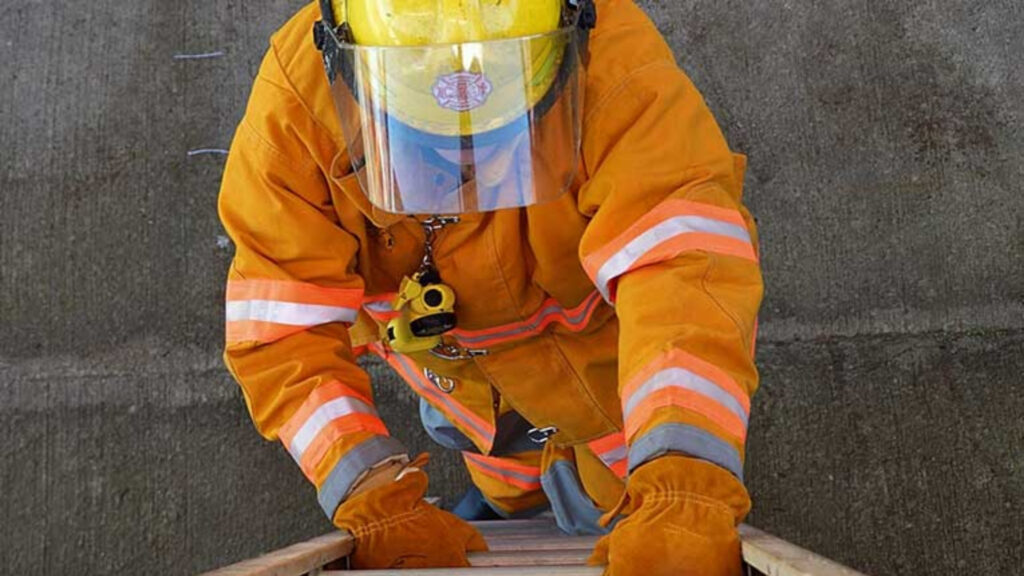
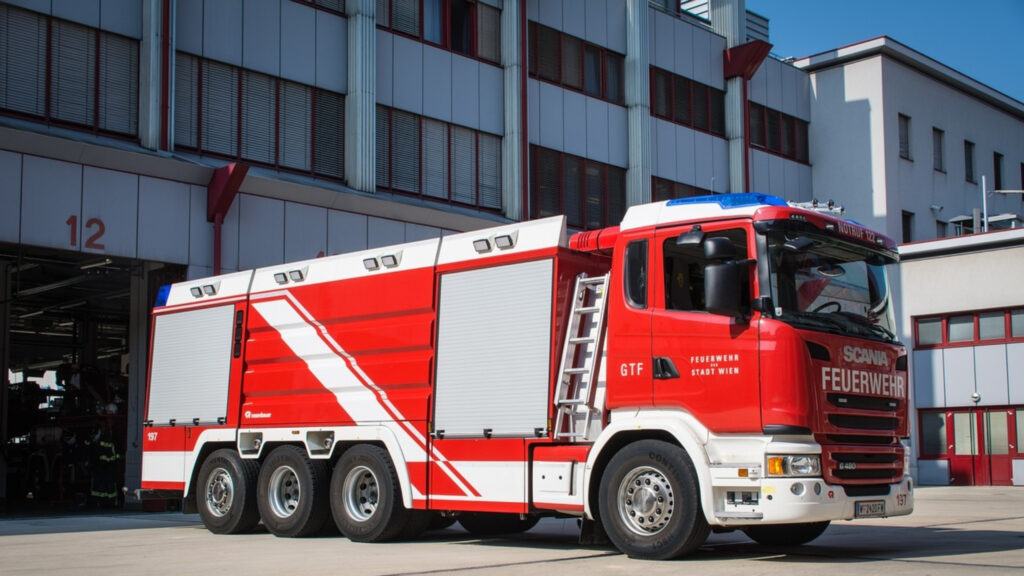
- Fire Fighting Vehicle
Equipped with tools, water tanks, and hoses, these vehicles ensure swift responses to emergencies. Their mobility enhances the reach of firefighting teams, effectively combating flames across diverse landscapes.
How is Firefighting Equipment Used?
Firefighting requires a strategic approach tailored to each fire’s unique characteristics. Firefighters leverage a systematic deployment of tools, using portable fire extinguishers for small-scale fires and hoses for larger blazes. Protective gear safeguards first responders while cutting-edge technology, such as drones and thermal imaging cameras, provides critical insights to inform strategies.
Training is crucial to ensure firefighters understand the capabilities of their equipment. Cohesive teamwork, rigorous practice, and coordinated execution are paramount in mastering the carefully honed techniques for tackling various fire scenarios.
Additional Support Equipment for Firefighting
Beyond the direct firefighting tools, several auxiliary items support efforts to extinguish flames and safeguard lives:
- Fire Sprinklers: Automatically released when detecting excessive heat, sprinklers suppress fires and protect structures.
- Fire Doors: These specialized barriers resist fire and smoke, allowing for controlled evacuation and minimizing fire spread.
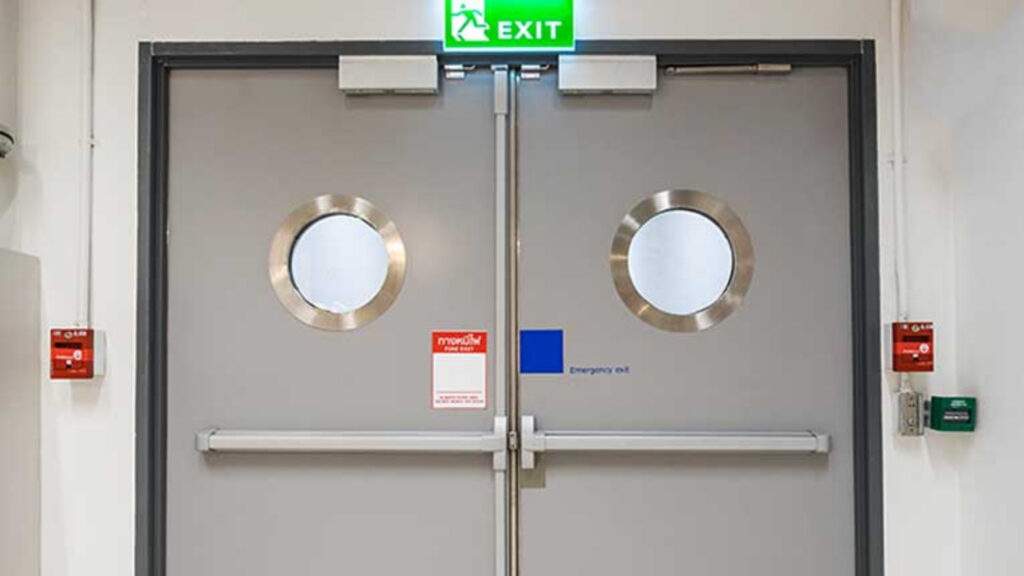
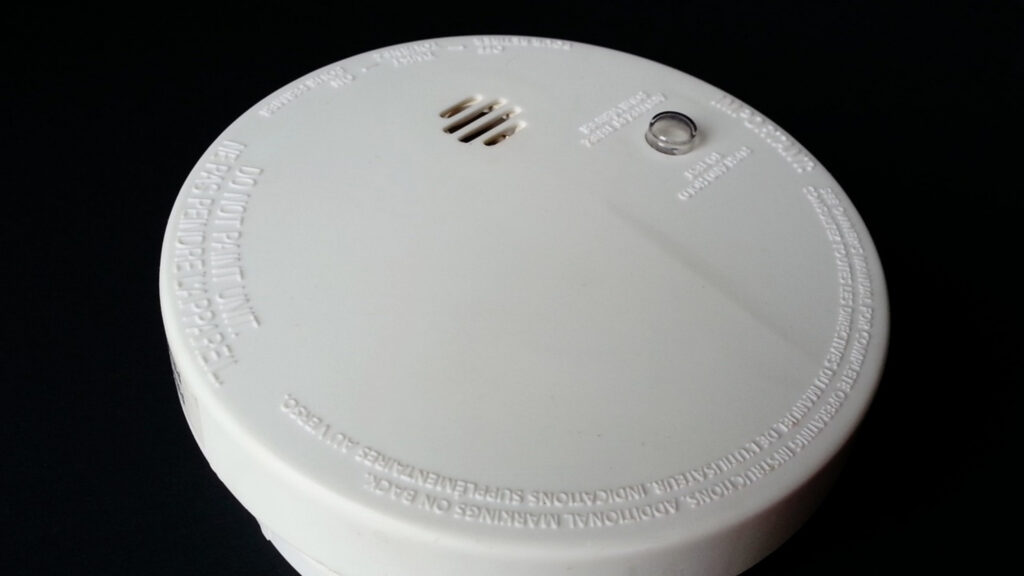
- Emergency Signs: Clear signage improves safety by delineating evacuation routes and guiding individuals to firefighting resources.
- Smoke Alarms: Early detection devices that alert occupants to smoke hazards facilitate timely evacuations.
- BA Entry Board: Manages protocols for safe entry and exit during breathing apparatus operations.
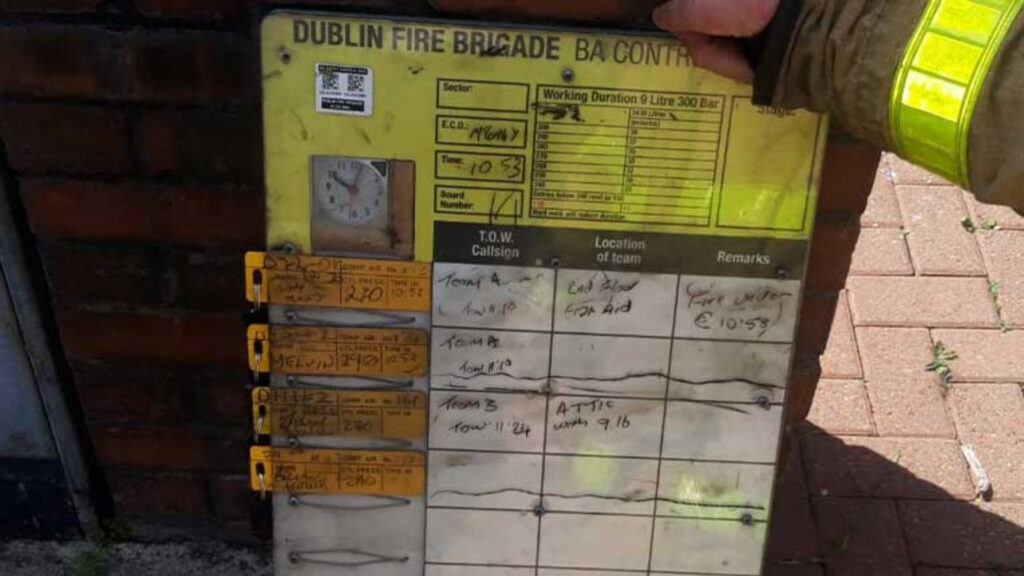
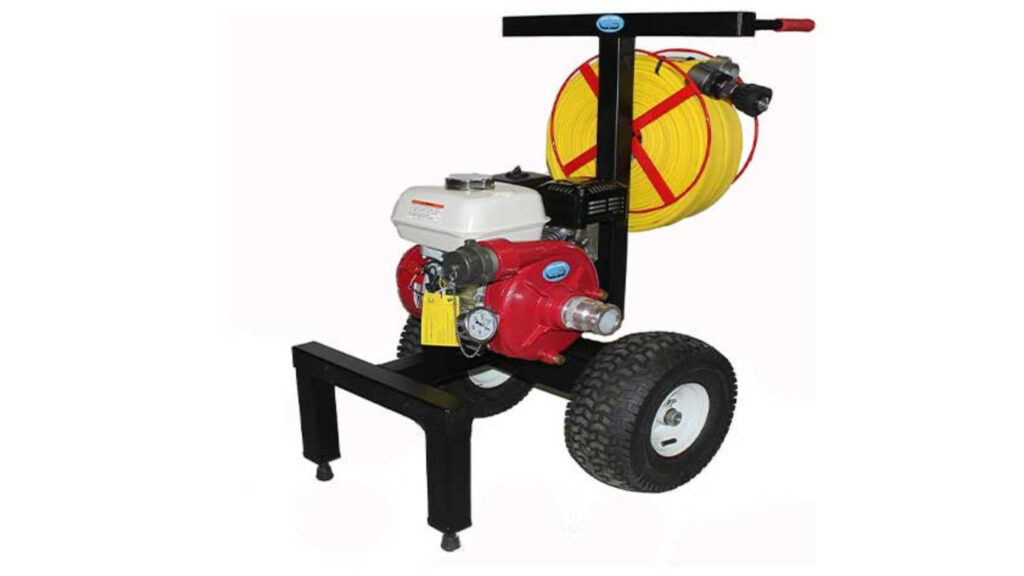
- First Aid Kit: Essential for addressing injuries during operations, providing immediate support until further medical help arrives.
- Light Portable Pump: Allows water transport to areas beyond the reach of larger firefighting vehicles.
- Cutters, Spreaders, Rams: Rescue tools that provide access and extrication capabilities during emergencies.
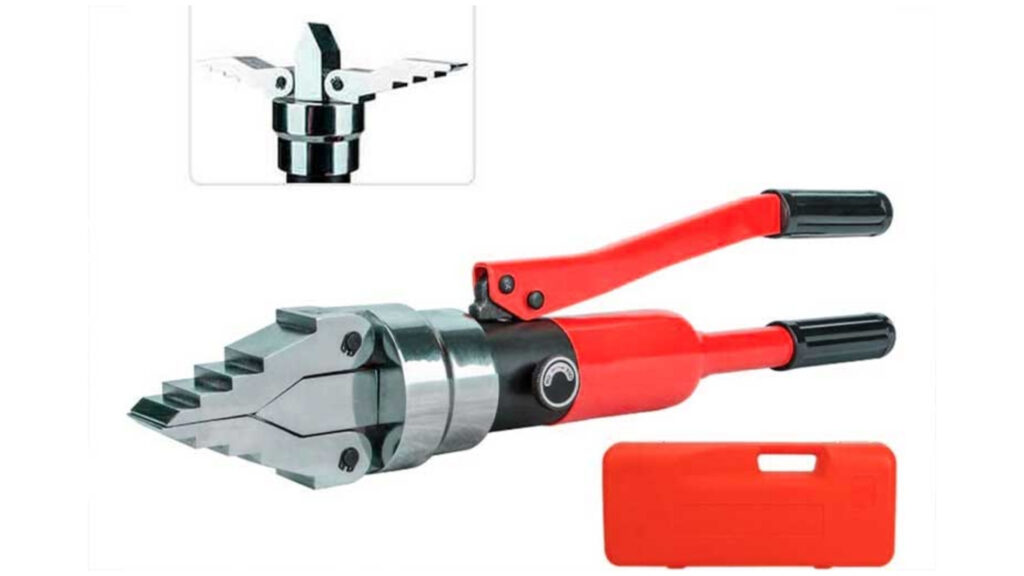
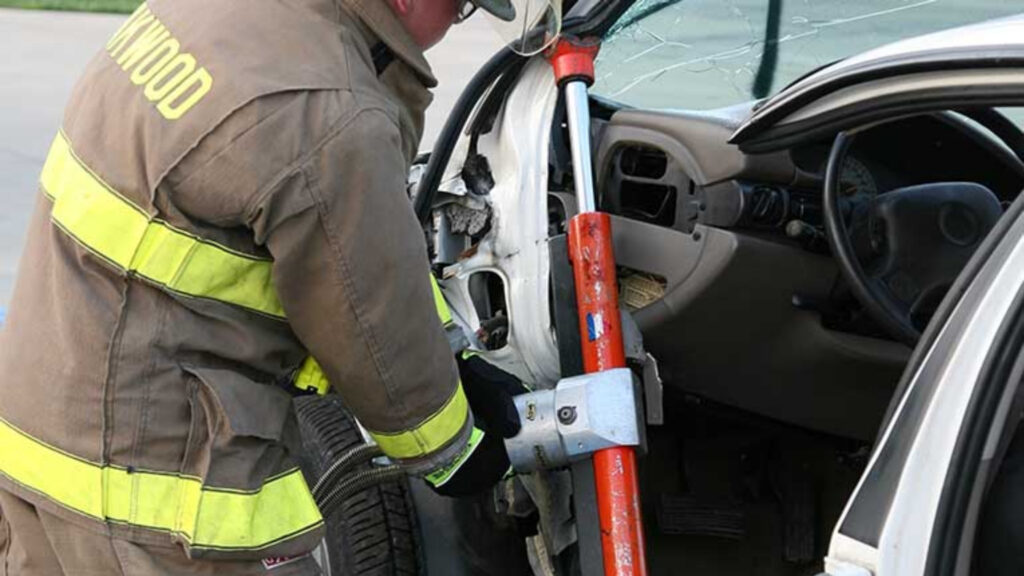
- Do Not Cross Tape and Traffic Cones: Vital for maintaining safety at the disaster scene and ensuring clear access for emergency responders.
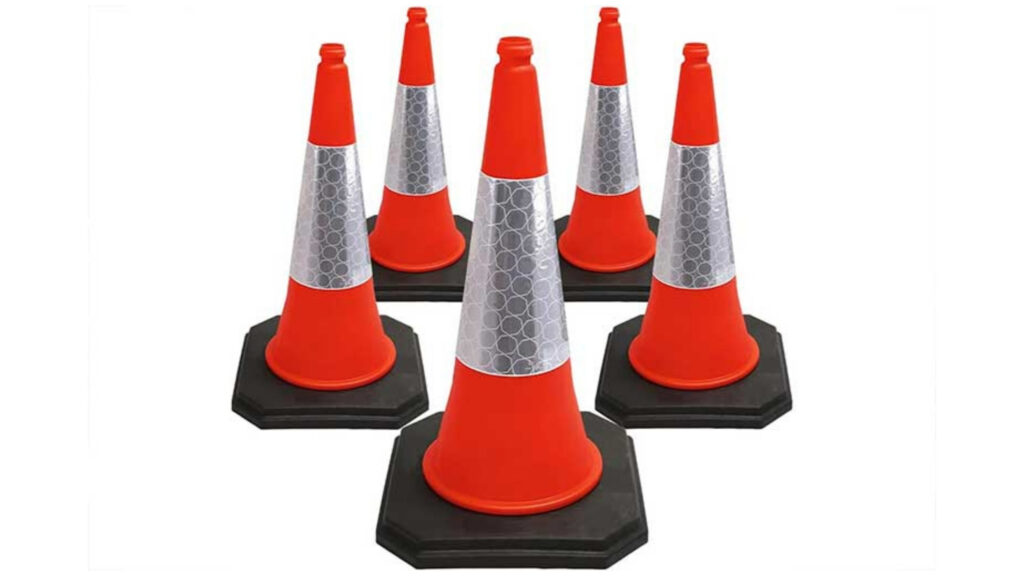
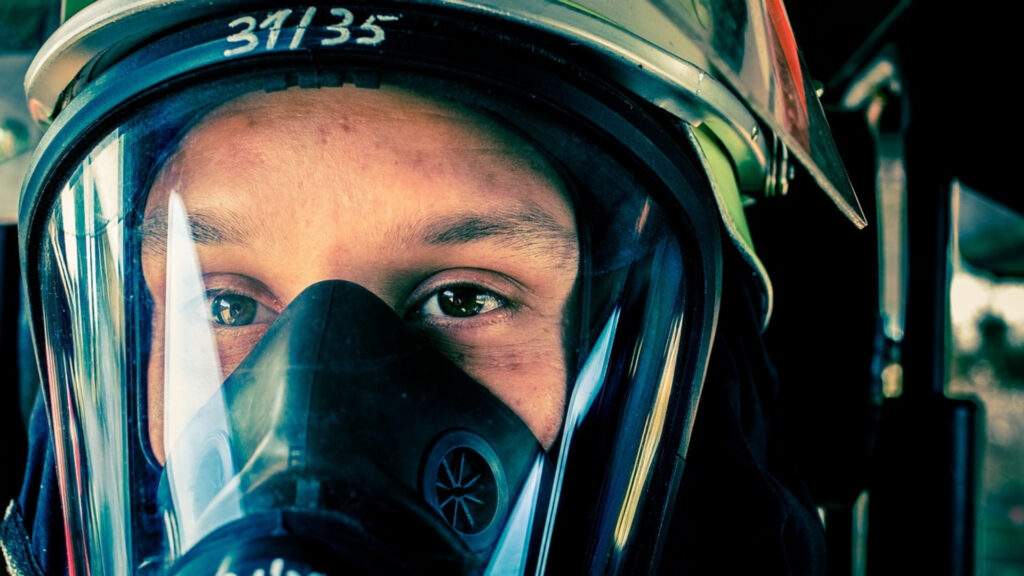
The Future of Firefighting Equipment
As technology advances, the future of firefighting equipment buzzes with exciting possibilities. Smart technologies, artificial intelligence, and the Internet of Things (IoT) are set to revolutionize gear. Wearable sensors and augmented reality visors promise enhanced situational awareness for firefighters tackling emergencies.
Material science may soon yield lighter, more durable protective gear, improving comfort and agility. Robotics, including autonomous vehicles and firefighting drones, are on the horizon, ready for deployment in increasingly complex fire scenarios.
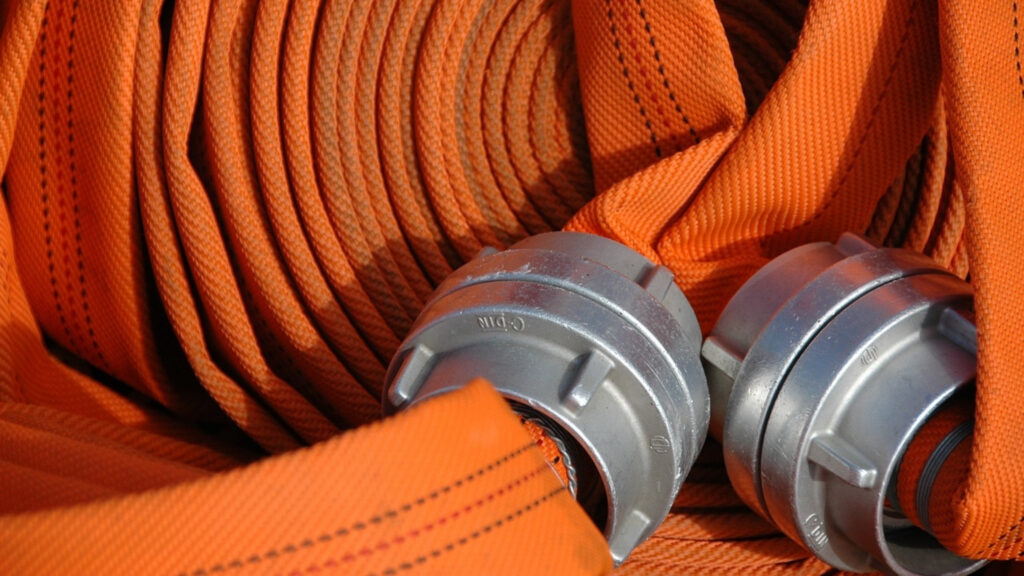
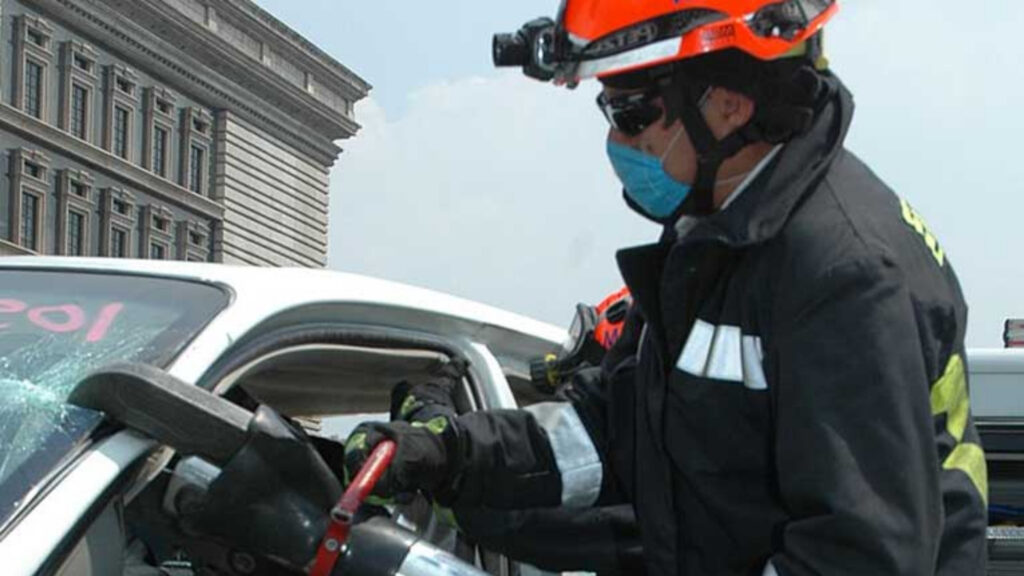
With climate change amplifying wildfire risks, firefighting equipment will evolve to meet the challenges posed by more frequent and severe fire incidents. Enhanced tools and strategies centered around early detection and prevention will play critical roles.
Conclusion
The vast array of firefighting equipment is a testament to the bravery and preparedness of those who risk their lives to combat fires. From traditional tools to cutting-edge technology, each piece of gear plays an essential role in fire suppression and ensuring firefighter safety.
As innovations continue, so too will the ability of first responders to protect lives and properties. The future shines bright for firefighting equipment as it evolves with technology, ensuring that those who confront the flames are always equipped to safeguard our communities against one of nature’s most unpredictable forces.